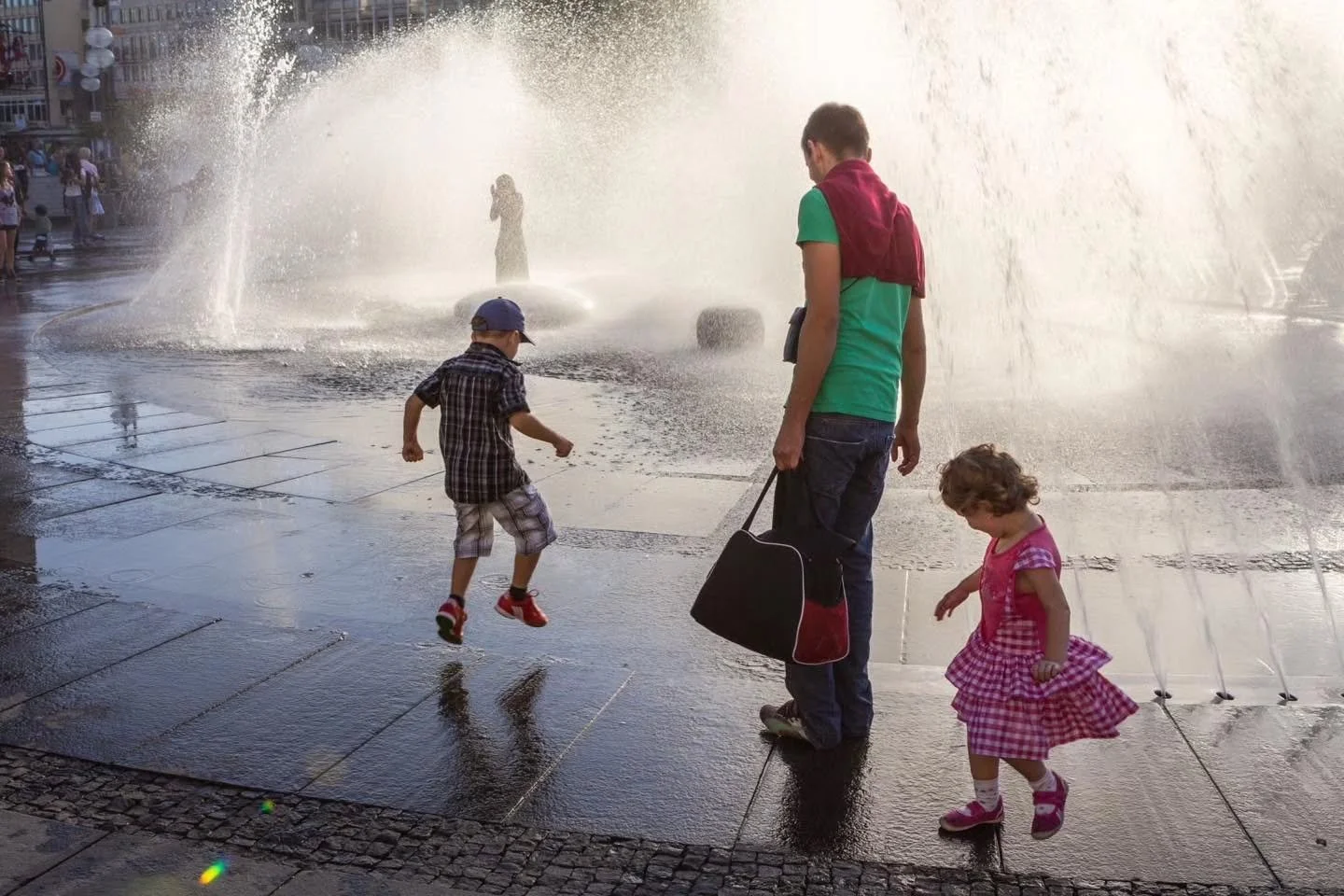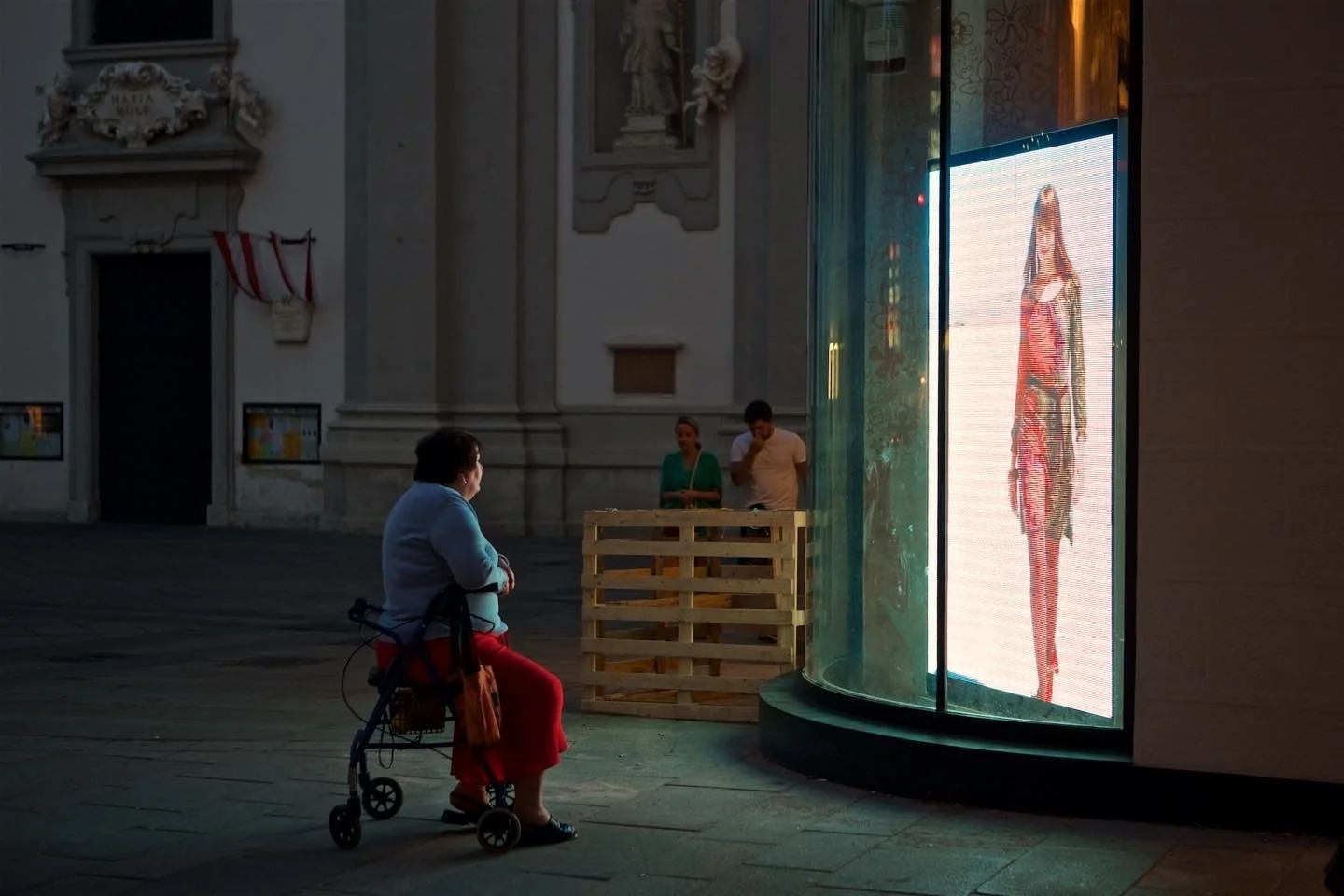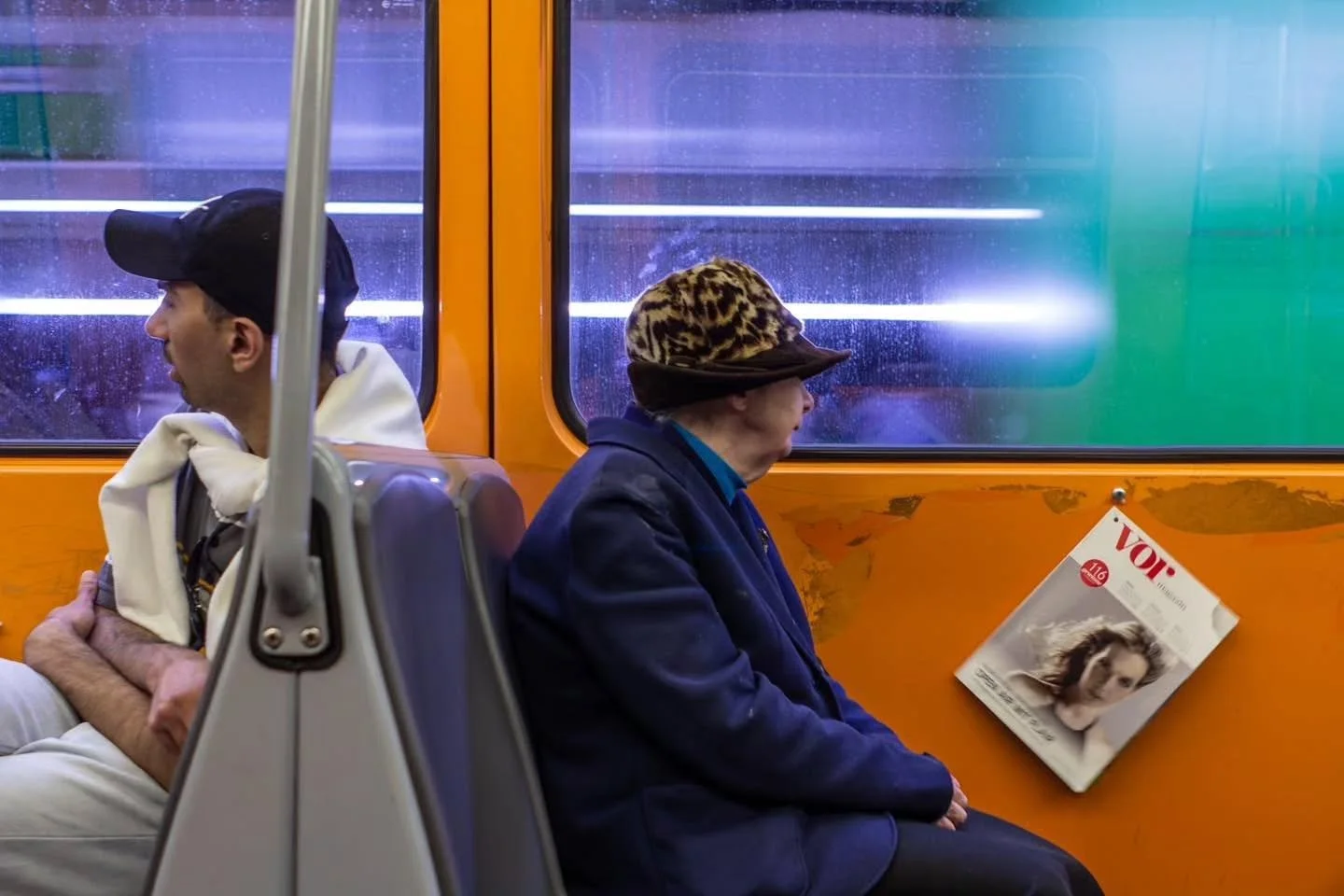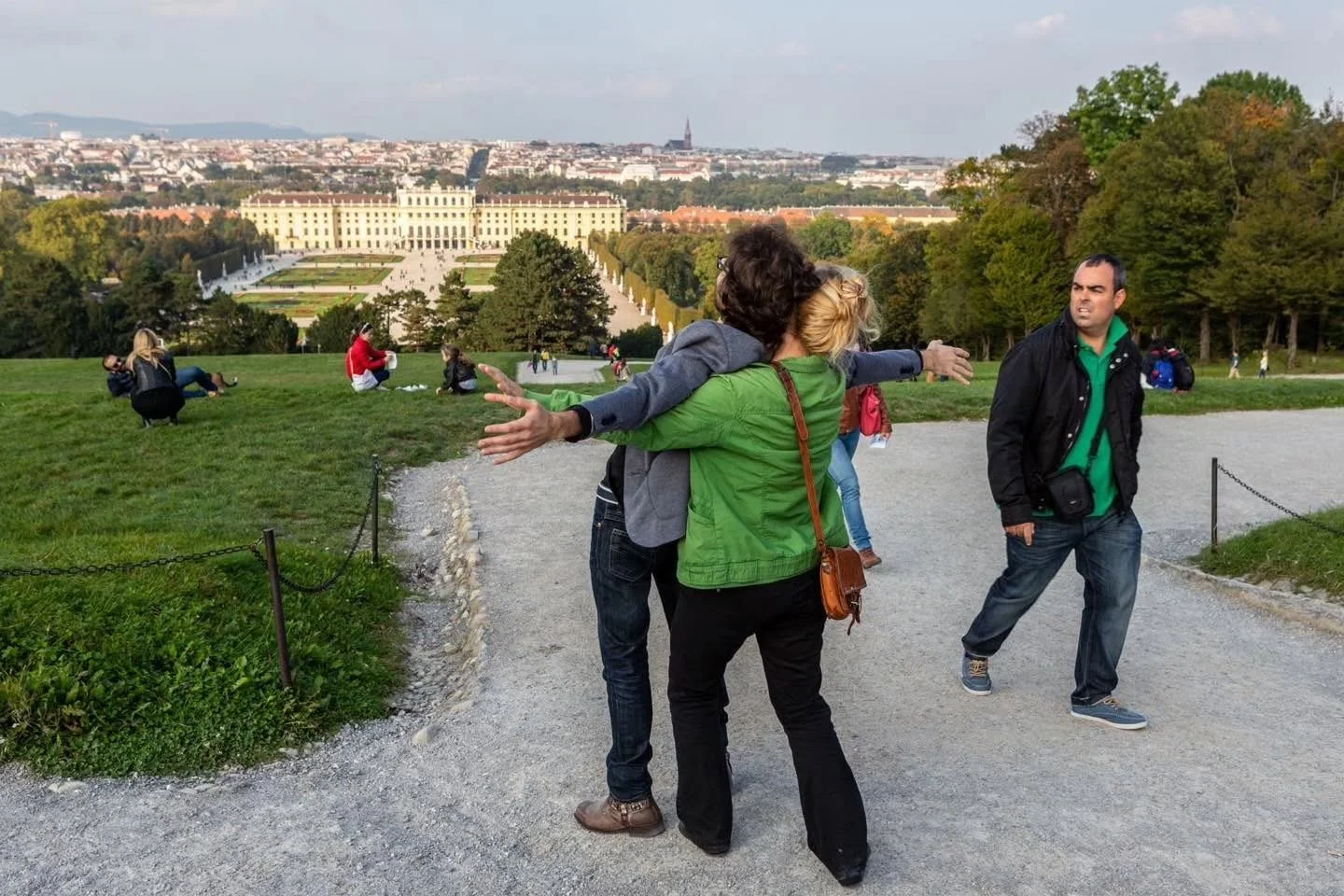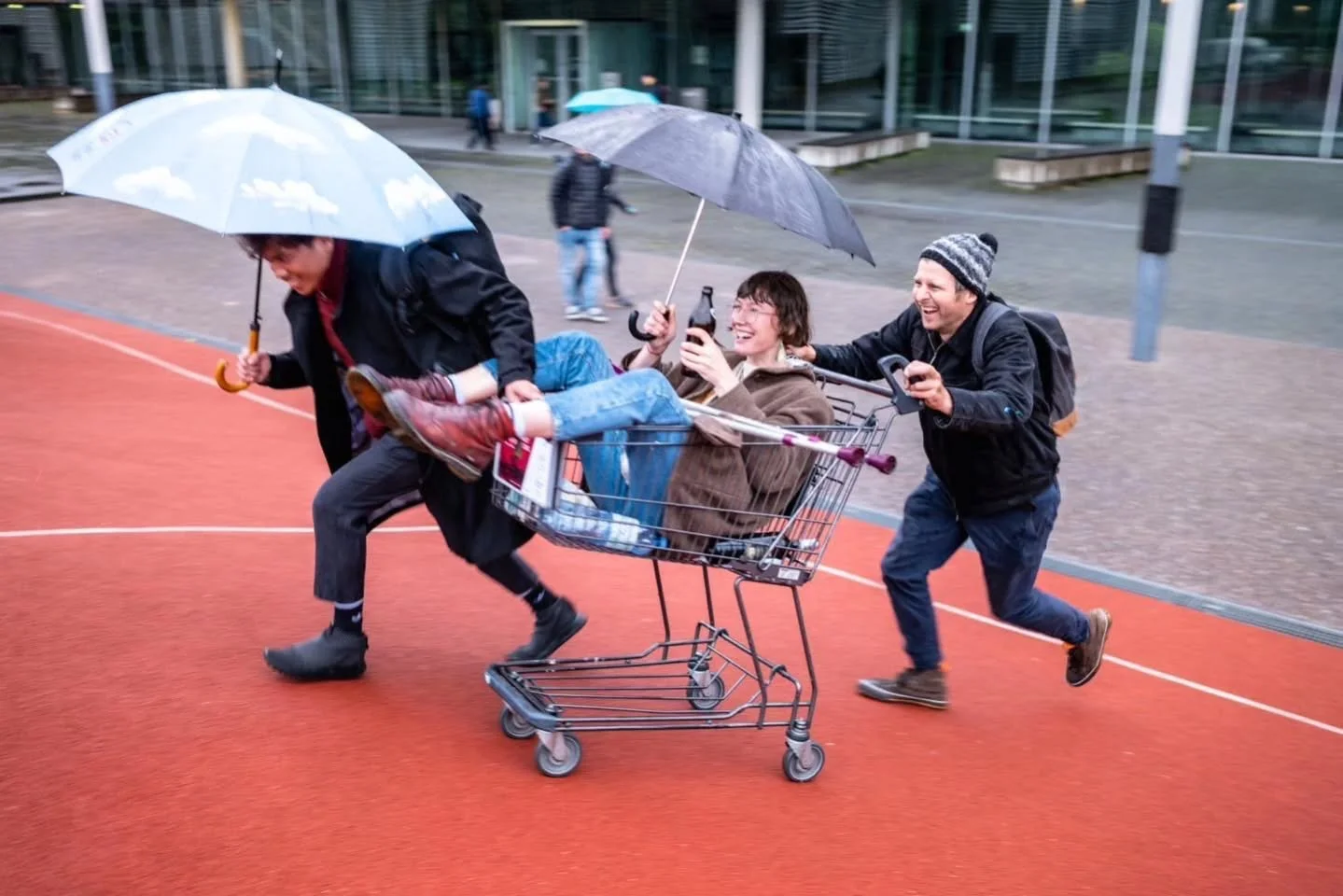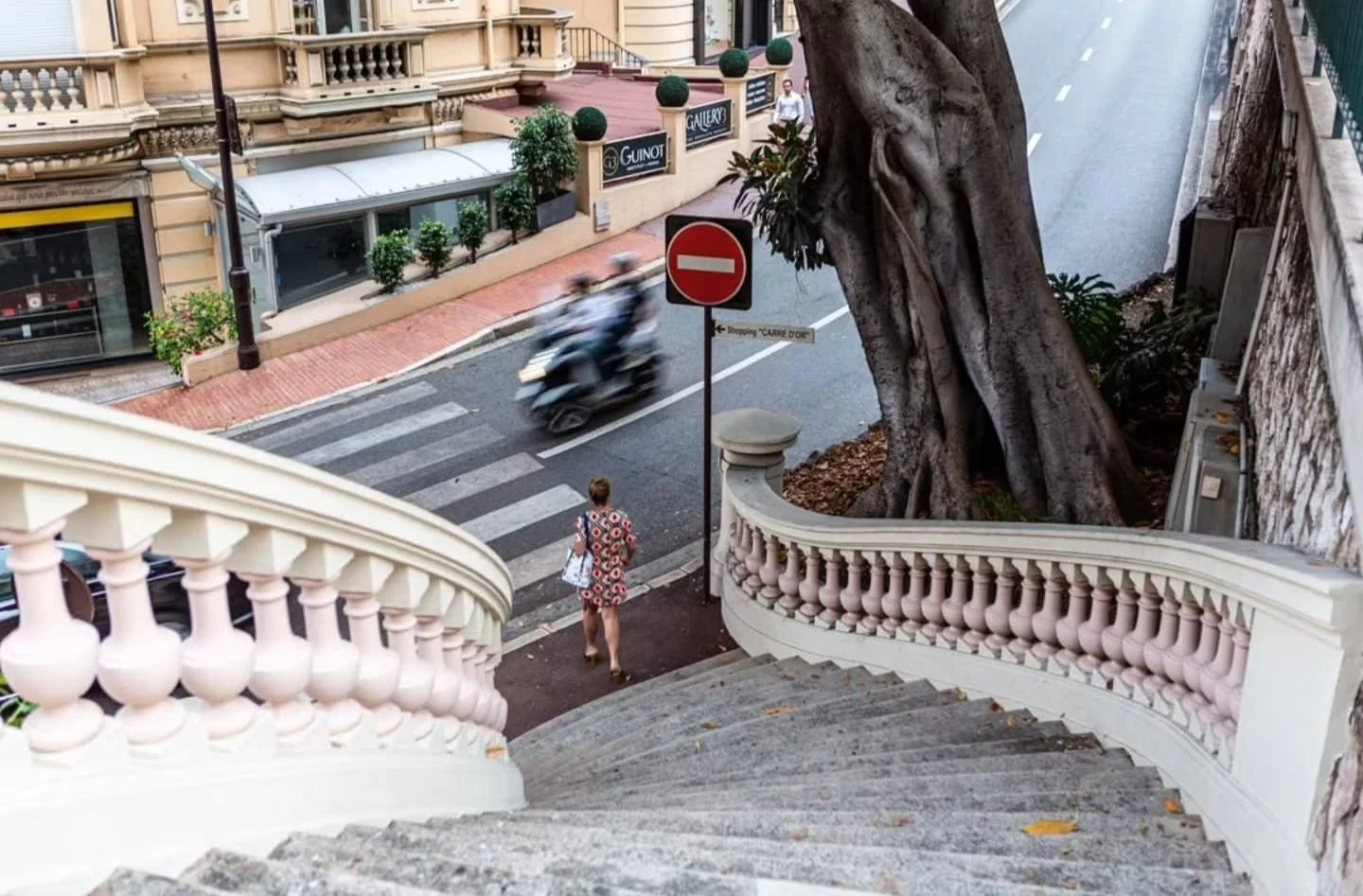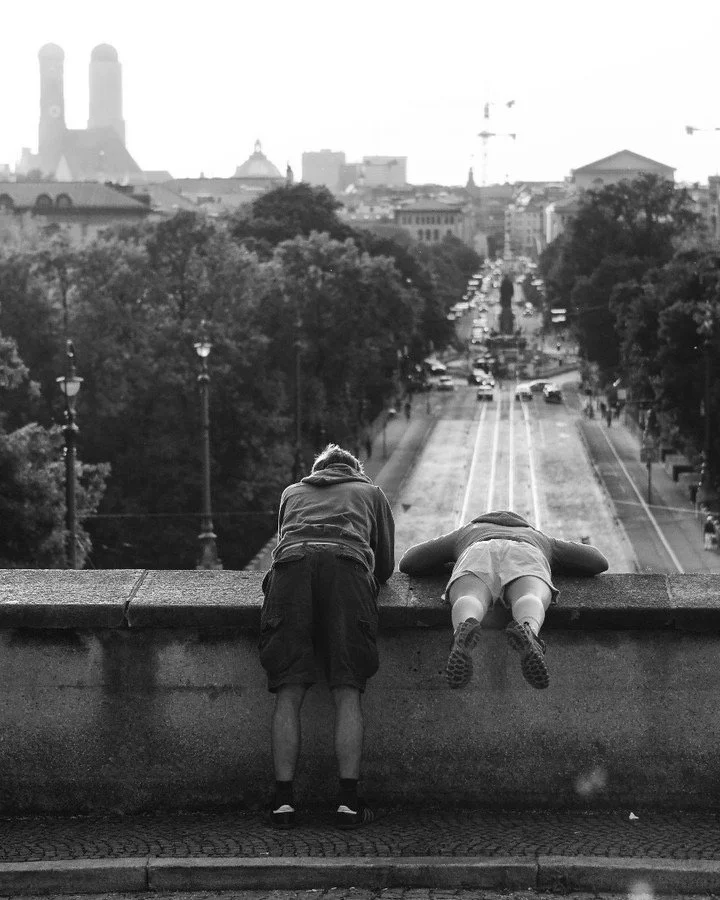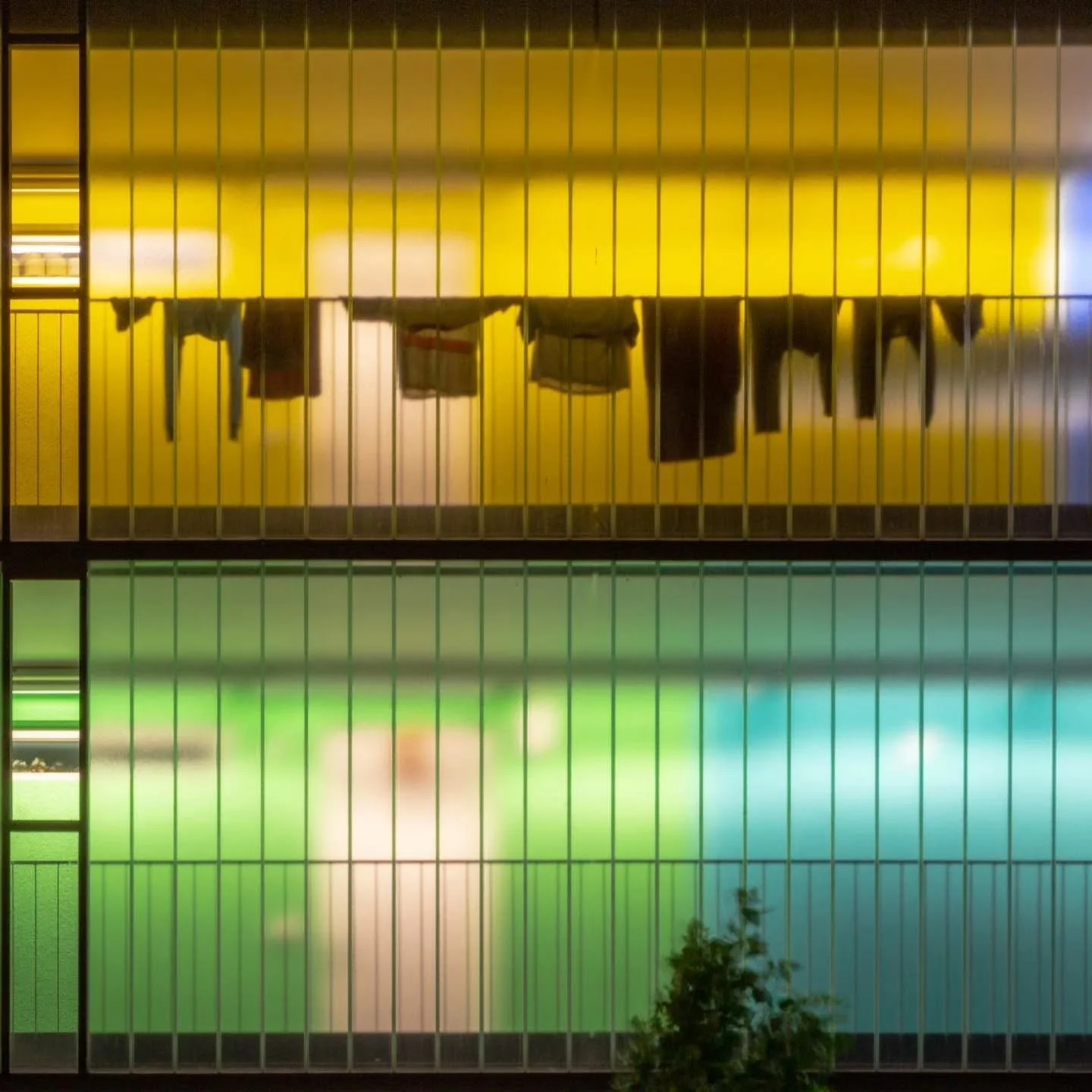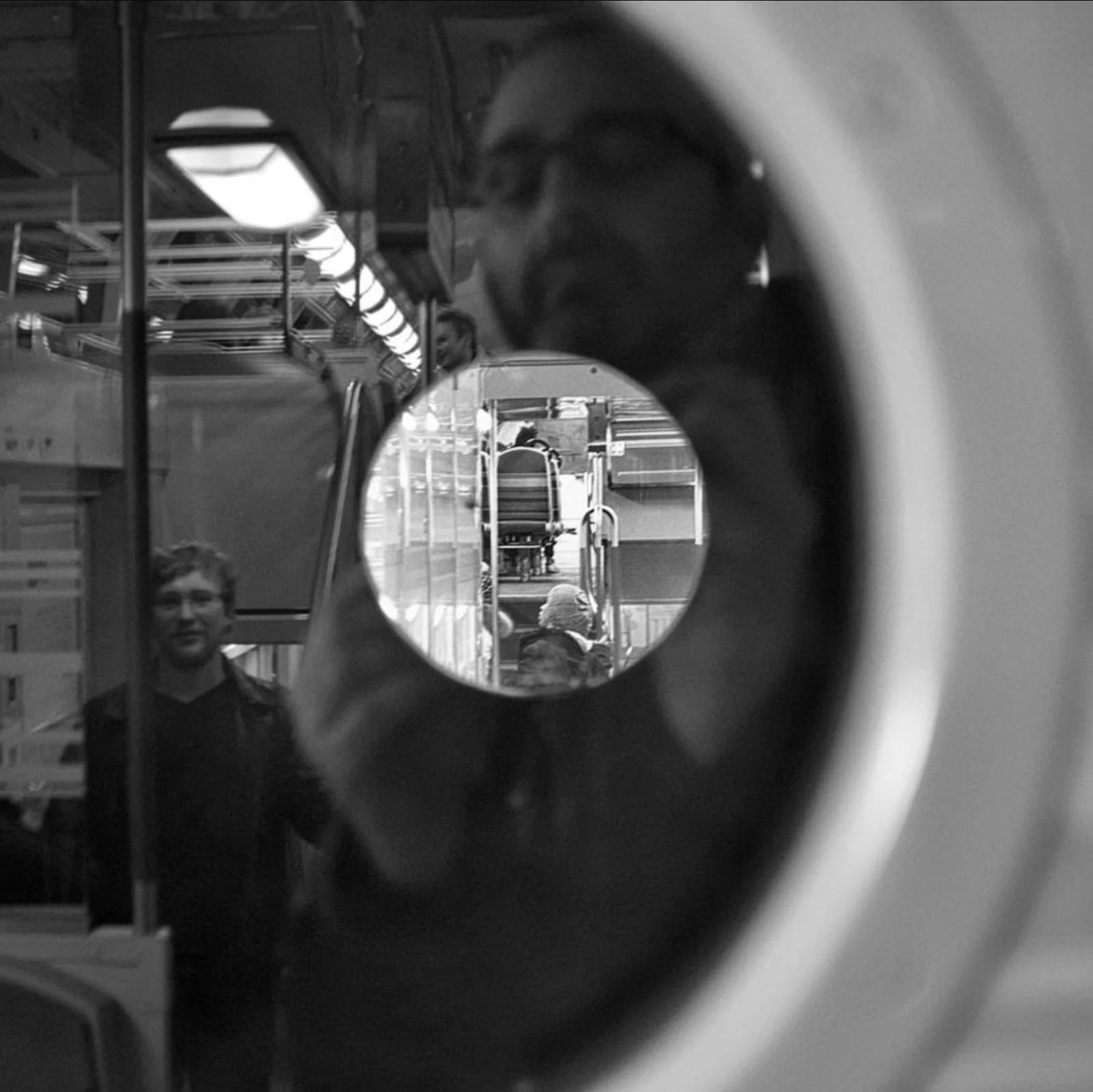The Relentless Eye & Master of Unmatched Composition — Bassem Tamimi Through Forty Incredible Years of Timeless Frames That Inspire Generations to Observe Deeply — Not Just Look
An Exclusive Interview with Pure Street Photography
Discover how Tamimi’s dream of filmmaking led him to street photography — where limitations sparked new creative paths. For him, it’s a daily practice, not about individuals, but about capturing the deeper truths of the human condition in public spaces.
Interview by Dimpy Bhalotia and Kamal Kumaar Rao
16/05/2025
(c) Bassem Tamimi
(c) Bassem Tamimi
We would love to know more about you! Who you are and where you're from? When did you start street photography?
I am an Austrian national and live in Vienna. Originally I am from the Middle East and grew up in Austria and Egypt. I did live in Munich, Germany for most of my adult life. I hold a Bachelor of Science in mechanical engineering and computer science. Professionally I worked as a software solutions developer.
What inspired you to become a street photographer?
I wanted to be a filmmaker, but circumstance at the time did not allow for such a path. Since I was at an American university, I had the privilege of taking courses outside of my major or minor. I tried to satisfy my interest in filmmaking by taking every course which would keep the dream alive. Among them was a course about photography. This is where I was first introduced to street photography and Henri Cartier-Bresson. On my 21st birthday my father gifted me a Nikon FE2 and two used lenses, an 85 mm f2.0 and a 35mm f2.8. Ever since then you rarely see me without a camera… that was forty years ago.
How would you describe your work in terms of style and/or approach?
Capture moments with people in an urban setting. My compositions take in more of the surroundings than other street photographers usually frame. In my street photography context is king. Which makes Instagram the worst possible platform to show off my shots.
(c) Bassem Tamimi
(c) Bassem Tamimi
What is your photography routine like? Do you photograph every day?
I always have a compact camera around my neck and I do photograph almost every day. Every now and then I go on photo excursions with friends where I carry more than a compact camera.
What camera or mobile device do you use for photography? Do you shoot digitally, on film, or a mix of both?
In recent years I use a Leica Q3 ( before it Q2 ), since it is compact enough and fit for all weather. Sometimes I use a Leica M6 with film. Worst case: I always have an iPhone on me. At the start of my “photography career” I shot black and white and did my own film development and enlarging. I was very interested in digital photography early on. I started experimenting with i during 1990s. It was in the early 2000s, though, when I decided that digital was the way to go.
What challenges do you face when photographing on the street?
It has become quite challenging in Europe to shoot street. Many people seem to have a problem ending up in a street photo.
Do you ever wonder what happens to the people in your photos?
Usually I do not. When I capture a moment in time and space I am interested in reflecting on the human condition, rather than the persons. But now and then there is a person in a frame that makes me wonder what became of them.
(c) Bassem Tamimi
(c) Bassem Tamimi
In your opinion, what is the biggest misconception people have about street photography?
Especially in Europe, people believe that you are doing something wrong when shooting street in a public place. There is a misconception that I have to ask every person in a frame, shot in a public place, if I am allowed to include them in a shot.
What are your favourite elements to capture in a street photograph? (light, colour, composition, human interaction, etc.)
I am attracted by the interaction between the urban surrounding and people. I’d like to capture the human condition at a certain place and time. My images should enable future viewers to connect to a time and place at many levels. I strive to transport through my street photography real people to real places ( through the fact that there are people at those places ). On a different note I added the challenge of working with color and qualities and effects of light when shooting in color.
What is your take on social media influence on street photography?
Although one might be lead to believe that social media allow for more visibility, it is a misconception in my opinion. Social media train us to recognise certain styles in art more than others. These usually are the ones which work best in thumbnail size. Intricate works of art rarely have a chance in a world where the attention span of the viewer for an item does not exceed a second. In some strange way social media did not change much in the way of success of artists. As long as an artist does not have support from those with the right connections their chances for success are as small as they ever were ( before social media ). Exceptions not withstanding. There are a few who were able to get their breakthrough through social media, while many other great talents never got their moment in the sun before losing out to Ai art ( which builds on their work without reference ) … life is unfair, but hey, we do it because we like it. That was my general take. For street photography specifically, I feel that social media has pushed the graphical version of street photography to the forefront. It seems to me the combination of thumbnails, short attention span by viewers and avoidance of conflict by the artists have conspired to lead this art form there.
Are your prints available for purchase? If so, where can art buyers and collectors contact you to purchase them?
My photography is not my business. Should someone, though, like one of my shots so much as to want to own a print, I would consider furnishing one. A person so inclined can contact me on IG. And should someone want to see my shots on a big screen ( as they are intended to be viewed ), they may browse to https://youpic.com/samTamimi/
(c) Bassem Tamimi
(c) Bassem Tamimi
What advice would you give to aspiring photographers?
On a practical note. For those who travel and want to shoot street, always connect with the locals first. They will inform you about customs and rules. And always roam the streets with a local by your side ( preferably a fellow photographer ). You will avoid a great deal of trouble this way. Aspire to shine, the light is for free.
A huge thank you to Bassem Tamimi for sharing his incredible journey.
In Frame : Bassem Tamimi

